Mintimer Shaimiev about Yury Luzhkov: “He was a patriot, faithful son of Russia and hard worker”
Former Mayor of Moscow Yury Luzhkov passed away at the age of 84 on 10 December. The politician, who led the Russian capital for 18 years (from 1992 to 2010), died in Munich. Commenting on his death, Tatarstan State Counselor Mintimer Shaimiev called Luzhkov a real patriot, hard worker and faithful son of Russia. In the interviews with Realnoe Vremya, political experts spoke about Mr Luzhkov more as a strong business executive than a politician but highly valued his possible prospects.
Luzhkov's death was announced at noon on 10 December. Yury Mikhailovich headed the capital administration under Boris Yeltsin. He served as mayor of Moscow until 2010. In total, Luzhkov headed the capital of Russia for 18 years.
Yury Luzhkov was born on 21 September 1936. He graduated from the Gubkin Institute of Petrochemical and Gas Industry. As a student, he was engaged in the komsomol work. In 1987, he became the first deputy chairman of the Moscow City Executive Committee. He became mayor of the capital in 1992.
-
-
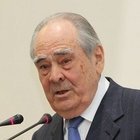
Mintimer Shaimiev State Councilor of the Republic of Tatarstan
-
He was a patriot, faithful son of Russia and hard worker. Wherever he worked, he did any job with love. He achieved success in every field. For eighteen years he worked as the mayor of Moscow. Three times elected, the support — from 70% to 80%. Such was the support and love of the people.
Yury Mikhailovich was a man of firm stance. He represented the capital with dignity. In difficult conditions, one has to have outlook and vision to choose the right path.
He successfully worked in the petrochemical industry.
He was one year older than me. We were friends. His mother is from Bashkiria. He remembered it often. He loved these lands.
Many things depend on the decisions of such people, including the fate of the country.
Eighteen years as mayor. It's a long time. What a great support!
His most active part of the activity fell on the fateful years of the country. He remained in the country after his retirement and continued to work. He was engaged in farming. He was restless, he loved people.
Gavriil Popov was elected the first mayor, he honestly admitted that this was not his job. Not everyone has courage to admit it.
Yury Mikhailovich said about creating a new party. I know that, too. We should fight and not be confined to one party. Then ER was created headed by Luzhkov. Not everyone supported.
When Yakovlev, Rakhimov and I created the Fatherland-All Russia party, we decided to unite the parties. After the unification congress, the United Russia party was created.
Then the Communists had strong roots. We decided to create a center-right party.
Whatever difficulties there were, we always understood each other, maintained friendly relations. He was a great leader, devoted to the Motherland.
-
-
-
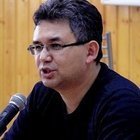
Abbas Gallyamov Political expert
-
The mayor turned out to be a much stronger economic manager than a politician. If he had understood his strengths correctly, he would have won both the 1999 election and the subsequent presidential campaign. Not realizing that in any case he should not have deviated from the theme of his “Moscow economic miracle”, he completely defocused his campaign.
At first, Luzhkov decided to work on the topic of “patriotism” and got into the topic of international relations — he started to argue that “Sevastopol is a Russian city”; then got involved in a war with “the family” and began to accuse it of corruption, running into a retaliatory strike and bogging down in the conflict, and so on. As a result of the country's only “man of business”, a man with years of real success, he turned from a usual “politician” in Russia, which are many. A misguided strategy buried his political prospects. Two years ago, a similar mistake was made by Grudinin.
-
-
-
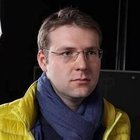
Ilya Graschenkov political expert, Director General of the Centre for Regional Policy Development (CRRP)
-
Luzhkov formed and shaped the image of Moscow, what we have today — only a polished and refined version of what Luzhkov laid. He was the director of a vegetable store, so the city thought like a market — a kind of space, according to Bakhtin, an eternal carnival. That is, Luzhkov's Moscow is not a strict metropolis of the empire, but a large village with fairs and buffoons. But he was a real Mayor — with a capital letter, not for nothing both Sobyanin and the one who will be after him inherited this political archaism. The mayor is not the governor, but the “strong economic manager” who was the first democratic reformer for the capital and also the gravedigger of the capital's politics.
He was a popular politician — that is, a classic, with high recognition and just political methods of work. Cap, bees, beer — all these are his images, interpreted as something flesh of the flesh folk, and therefore — native, close. His strong point was that he was sincere and, at the same time, instinctively realized how to act correctly. That is, such an “animal type” politician, nugget, that’s why — tyrant with bad temper.
His mistake is to lie under the Kremlin. He abandoned his popular rating and began to work only for a single voter. When the authority changed and decided to get rid of the old heavyweights, he did not realize that his declining rating no longer guaranteed him political immortality. Medvedev demolished it easily, and he could not oppose anything to the new nomenclature. Putin did not defend an alien mayor from the old world. Besides, his team eventually became corrupted, aged and a stumbling stone on the foot of the still cheerful Luzhkov.
His attempt to participate in the elections with Fatherland — All Russia failed, as the project frightened the federal government. Then Fatherland — All Russia could really win the majority, and we would have lived in a different country. But he had neither will nor energy. Then the regions lost the fight to the federal centre, and the answer was the “vertical of power”, defederalization. If a different scenario had happened, we could have lived in a different country. Luzhkov's connections were great, I think that at least three monuments to him should be erected — in Moscow, Sevastopol and Medyn. After all, he was the one who prepared the city of Sevastopol for integration into the Russian Federation, and in Medyn — he finished his days as a beekeeper.
-
-
-

Yevgeny Minchenko political expert, head of Minchenko Consulting communication holding
-
Luzhkov was the architect of the economic and political system that has developed in Moscow, of course, with its pros and cons. He was one of the pillars in the 1990s in Russia, one of Boris Yeltsin's three pillars, along with oligarchic groups and Gazprom Group. I cannot say that he made fatal mistakes, tried to create a feudal principality in Moscow. For a moment, he succeeded. It is no coincidence that Luzhkov became the leader of the bloc in the 1999 elections, in which the republics played a significant role. Actually, the same kind of authoritarian political regime Luzhkov built in the capital, at the same time, a certain elementary order was laid in Moscow under Luzhkov. I think his main mistake was in urban planning policy — in relation to the historical heritage of Moscow and to the models by which the construction complex needed to develop in such megapolis in general.
-
-
-
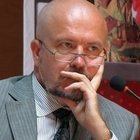
Andrey Kolyadin political strategist, former employee of the Presidential Administration of Russia
-
He was undoubtedly an extraordinarily talented leader. He anticipated many things: the return of Crimea to Russia, independent television, party building. He changed Moscow from a poor city with nothing to eat to a world-class city. At the same time, his thinking, his efficiency, his desire to change the surrounding life was so powerful that he would be able to do a lot of positive things with the country. But, you know, history has no subjunctive mood. Other people ruled this country quite successfully. And the constant interference of Luzhkov as a federal figure in the activities of the government irritated the authorities at the federal level. At the end of his work in Moscow, the paradigm of governance in the country began to change. Mayors, governors ceased to be the political class making key decisions in the federal agenda. They began to orient towards Moscow. And Moscow, planning the life of the country, began to distribute tasks for the leaders of each territory. But when the man had the manners and ideas to reorganize the whole power, it did not always coincide with the federal plans. Many iconic personalities for the development of this country, such as Shaimiev, found their niche. Shaimiev continued to exist in the politics and economy of his region, becoming an elder, as everyone respectfully calls him, Babay (grandfather in Tatar — editor’s note) of the entire territory. Luzhkov's opposition to the federal center ended with his resignation. But the fact that he spent 18 years since 1992 transforming Moscow in the most difficult conditions and made it a super-city, made a very serious contribution to the political development of the country as one of the founders of United Russia party, as a man who laid many ideas, ranging from agricultural production, beekeeping, television, and many other industries, in which he had his hand, became better, more perfect, speaks about him as an outstanding man.
-
-
-
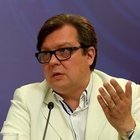
Aleksey Martynov journalist, political expert, human rights activist
-
Certainly, Luzhkov contributed a lot not only to the development of one of the largest megacities in the world but also in general in a certain period of development of the country. Of course, there is a lot connected with his name in Moscow, despite certain difficulties. In any case, Luzhkov is a figure of national scale, he was the leader of Fatherland — All Russia party in a difficult period of modern history. Now he is gone, what's the point of talking about problems or mistakes? One way or another everyone is wrong, and his mistakes and not the most remarkable pages of biography coincide approximately with the mistakes or not the most decent pages of our whole country. He was certainly a prominent man. I think he will be remembered in Moscow for a long time. One of the streets of our capital will surely bear his name.
-
-
-
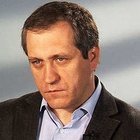
Boris Mezhuev political expert, publicist
-
A big man died. Of course, I would like to remember only the good, and Luzhkov had a lot of good things. Moscow has become a clean European city, especially in the center it has become very cozy. All claims to Luzhkov were destroyed by reference to a sharp improvement in the quality of life of citizens. He was trying to save the remnants of the production capacities. He provided real assistance to Sevastopol, the financial support for hospitals and children's institutions was not ostentatious. It was a difficult era. But by 1997, the citizens of Moscow were 95 per cent satisfied with Luzhkov as mayor. The period of 1999 — early 2000 turned into the collapse of the party, the collapse of presidential and even premiership ambitions for him. Of course, the shortcomings of the style of city government were noticeable. The most important thing was the destruction of historical buildings, then flooding of Moscow markets with ethnic groups, semi-slave labour. “Cherkizon” was distinguished by a huge number of criminal niches. There were many ill-conceived architectural decisions. Although many things were wonderful, such as the restoration of the Church of Christ the Saviour. But among the crazy decisions — the spoiled park in Tsaritsyno. There was a lot of new buildings, destruction of old Moscow. But against the background of the scope of modern housing construction, it seems to be the height of caution to remember Elena Baturina. Of course, Luzhkov really hoped that the most powerful figure in Russia — the governor and the union of governors — would be able to solve the issue of the change of power. On the one hand, in 1999 the government was in a terrible state, but was such an alliance of governors an alternative to Yeltsin? Luzhkov was an autocratic man in psychology — ambiguous attitude to his political activities.
-